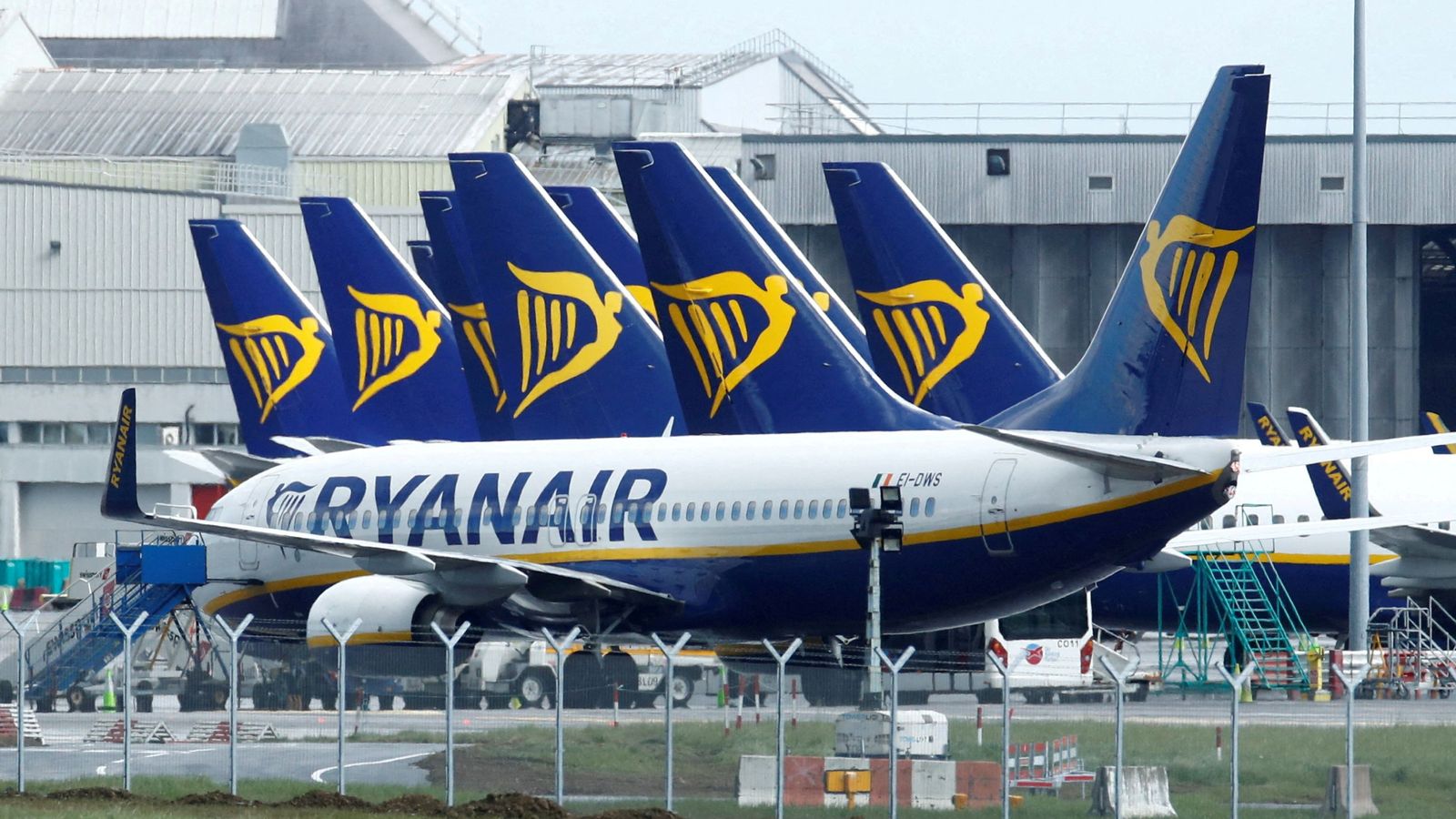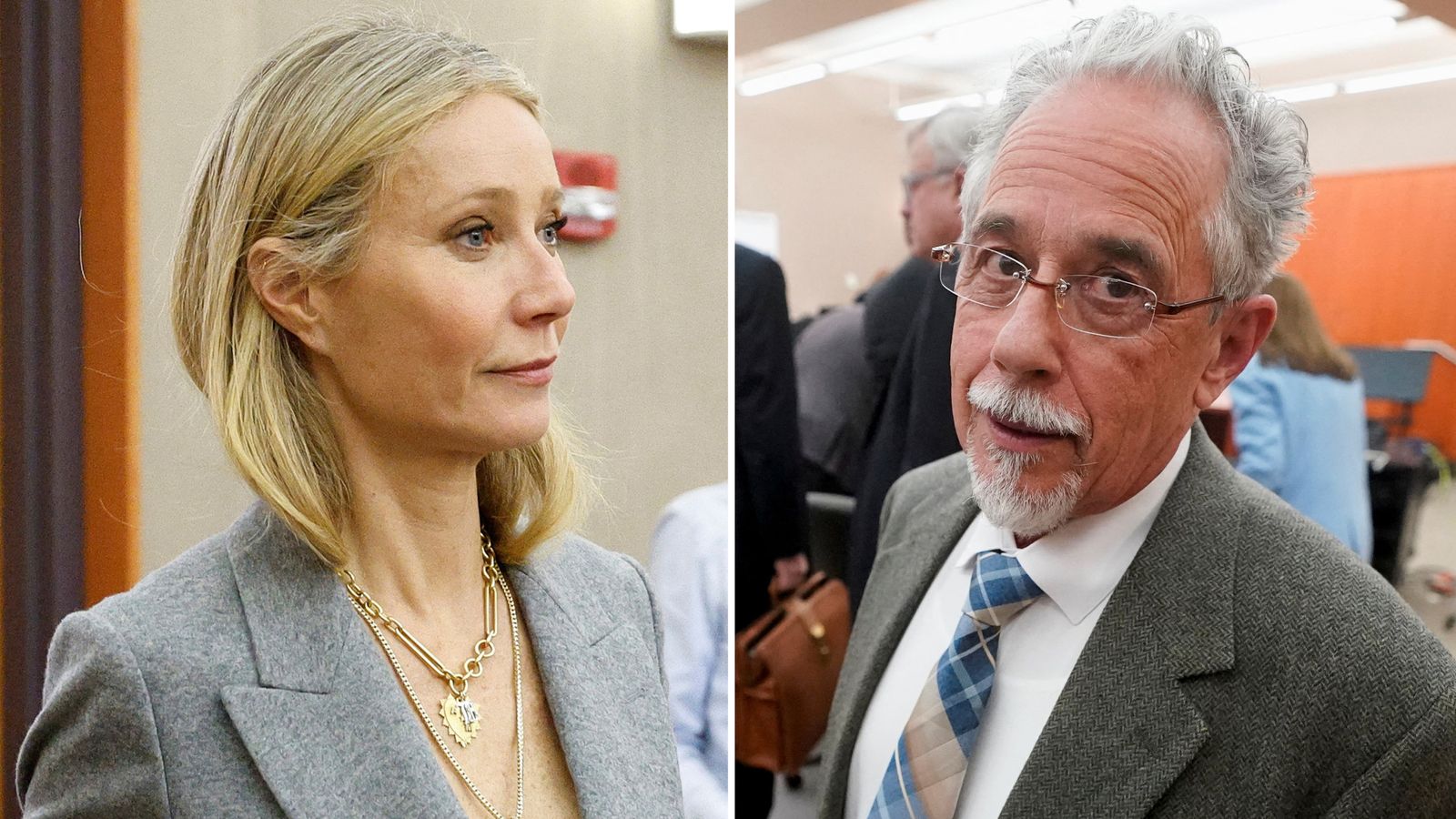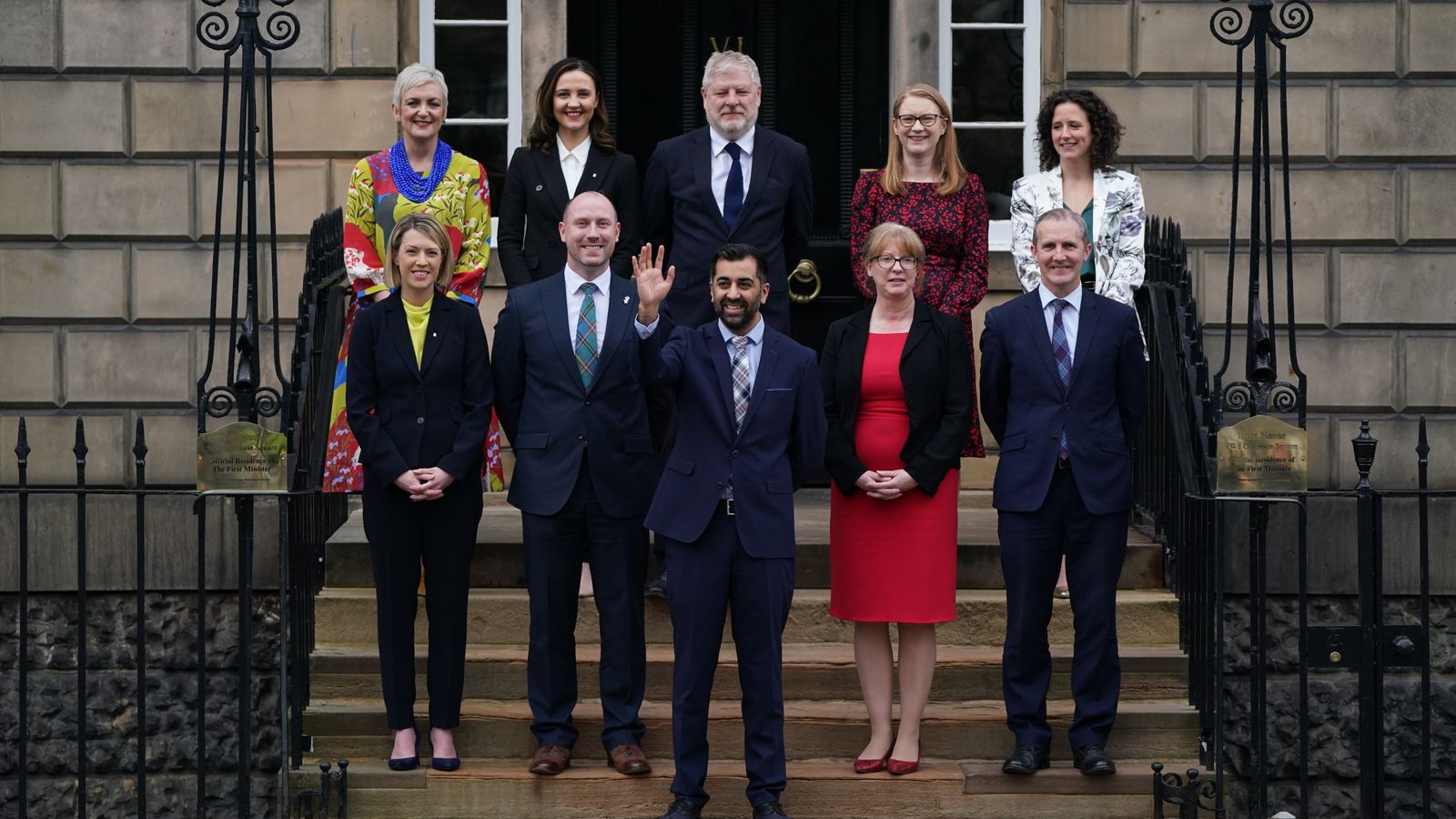The chief executive of Ryanair has said journeys on the airline will become more expensive for consumers.
Michael O’Leary said air fares could rise between 10% and 15% this year but are unlikely to increase more than 20%.
The company’s latest results showed the number of flights had already increased by 14% in the final three months of 2022.
Last summer the outspoken boss said the era of the €10 (£8.80) flights is over as fuel costs rocketed after Russia’s invasion of Ukraine.
At the time he said Ryanair’s average fare would rise from roughly €40 (£33.75) in 2021 to roughly €50 (£44) over the next five years, he said.
Speaking on Wednesday, Mr O’Leary said traffic on the budget carrier was expected to grow by 10% this year. Strong bookings may continue through the summer, he added, driven in part by US tourists coming to Europe after the COVID pandemic.
Please use Chrome browser for a more accessible video player
Office of National Statistics figures showed air travel prices increased more than 44% in December from a year earlier – and the greatest increase since 1989 – due to high demand for travel.
Ryanair reports record profits and more expensive fares
Ryanair strikes: Passengers can be compensated for 2018 flight cancellations, airline agrees
Higher fares and record traffic make Ryanair finances better than pre-COVID
But in January lower air fares and falling wholesale energy prices were part of the reason the pace of inflation increases had dropped.
Inflation has remained in persistent double digit figures and the pace of price rises actually increased 10.4% in the year up to February.
There had been a belief that the worst of inflation was over after the rate of increases consistently fell after a high of 11.1% in October.
Be the first to get Breaking News
Install the Sky News app for free
Earlier this year Ryanair reported record after-tax profits of €211m (£185m) in the Christmas season from October to December, bouyed by increased passenger numbers and more expensive flights.
The low cost carrier continued to perform better than its pre-COVID years as pent-up demand during October half-terms and Christmas and New Year breaks resulted in “strong” passenger numbers and fares across the board.
Fares rose 14% over the three months last year compared the same three months in 2019. The rises were seen most during peak travel periods when demand was pent up, the airline said.









